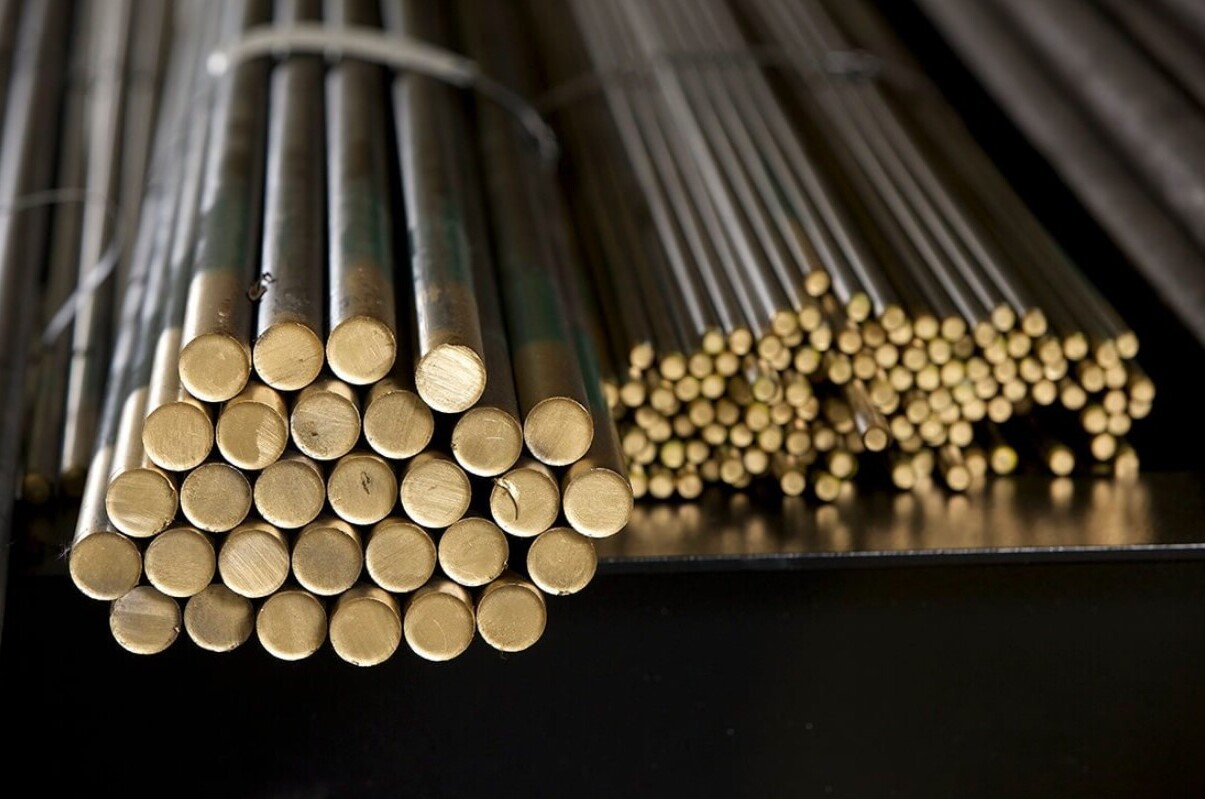
Alloy 20 is a superalloy known for its exceptional resistance to corrosion, making it a popular choice in industries dealing with harsh chemicals. But what exactly makes Alloy 20 so special? Its unique composition of nickel, chromium, and molybdenum provides outstanding protection against sulfuric acid and chloride stress corrosion cracking. This alloy is not just about durability; it also offers excellent mechanical properties and ease of fabrication. Whether you’re in the chemical, pharmaceutical, or food processing industry, understanding the benefits and applications of Alloy 20 can help you make informed decisions. Ready to dive into the fascinating world of this versatile material? Let’s get started!
Key Takeaways:
- Alloy 20, also known as Carpenter 20, is a super stainless steel with exceptional resistance to corrosion. It's perfect for industries like pharmaceuticals and food processing due to its ability to withstand acidic environments.
- Choosing Alloy 20 for equipment comes with many benefits, including reduced maintenance costs and extended lifespan. Its resistance to corrosion and ability to withstand high temperatures make it a valuable material for various applications.
What is Alloy 20?
Alloy 20, also known as Carpenter 20, is a versatile stainless steel alloy. It is known for its excellent resistance to corrosion and its ability to withstand harsh environments. Let's dive into some fascinating facts about this remarkable material.
-
Alloy 20 is primarily composed of iron, nickel, and chromium, with nickel making up about 32-38% of its composition.
-
It was developed to combat acid attack, specifically sulfuric acid, which makes it highly valuable in chemical processing industries.
-
The alloy contains copper, which enhances its resistance to sulfuric acid.
-
Alloy 20 also includes molybdenum, which helps improve its resistance to pitting and crevice corrosion.
-
It is often used in industries such as pharmaceuticals, food processing, and plastics due to its ability to resist corrosion in acidic environments.
Properties of Alloy 20
Understanding the properties of Alloy 20 can help in appreciating its wide range of applications. Here are some key properties that make it stand out.
-
Alloy 20 has excellent mechanical properties, including high tensile strength and good ductility.
-
It exhibits good resistance to stress-corrosion cracking in boiling 20-40% sulfuric acid.
-
The alloy maintains its strength and corrosion resistance even at elevated temperatures.
-
It has a density of approximately 8.08 g/cm³, making it relatively heavy compared to other materials.
-
Alloy 20 can be easily fabricated by conventional methods, including welding, which adds to its versatility.
Applications of Alloy 20
The unique properties of Alloy 20 make it suitable for a variety of applications. Here are some common uses of this alloy.
-
It is widely used in the production of chemical and pharmaceutical equipment due to its resistance to acidic environments.
-
Alloy 20 is used in the manufacturing of heat exchangers, mixing tanks, and metal cleaning equipment.
-
It is also employed in the food processing industry, particularly in processes involving acidic foods.
-
The alloy is used in the production of synthetic rubber and plastics, where resistance to corrosive chemicals is essential.
-
Alloy 20 is often used in the construction of piping systems and storage tanks for handling corrosive liquids.
Advantages of Using Alloy 20
Choosing Alloy 20 for various applications comes with several benefits. Here are some advantages of using this alloy.
-
Its excellent corrosion resistance reduces maintenance costs and extends the lifespan of equipment.
-
The alloy's ability to withstand high temperatures makes it suitable for use in heat-intensive processes.
-
Alloy 20's good mechanical properties ensure durability and reliability in demanding environments.
-
Its versatility in fabrication allows for easy customization and adaptation to specific needs.
-
The alloy's resistance to pitting and crevice corrosion enhances its performance in harsh conditions.
Alloy 20 vs. Other Alloys
Comparing Alloy 20 with other alloys can provide insight into its unique characteristics. Here are some comparisons.
-
Alloy 20 offers better resistance to sulfuric acid than 316L stainless steel.
-
It has higher nickel content compared to 304 stainless steel, which improves its corrosion resistance.
-
Alloy 20 is more resistant to chloride-induced stress-corrosion cracking than 317L stainless steel.
-
It provides better overall corrosion resistance than Hastelloy C-276 in certain environments.
-
Alloy 20 is often preferred over Inconel 625 for applications involving sulfuric acid due to its superior resistance.
Maintenance and Care for Alloy 20
Proper maintenance and care can extend the life of Alloy 20 equipment. Here are some tips for maintaining this alloy.
-
Regular cleaning with mild detergents can help prevent the buildup of corrosive substances.
-
Avoid using abrasive cleaning tools that can scratch the surface and compromise its corrosion resistance.
-
Inspect equipment regularly for signs of wear and tear, especially in high-stress areas.
-
Apply protective coatings if the alloy is exposed to particularly harsh environments.
-
Ensure proper storage conditions to prevent exposure to corrosive elements when not in use.
Fun Facts about Alloy 20
Let's explore some interesting and lesser-known facts about Alloy 20.
-
Alloy 20 was first developed in the 1950s by Carpenter Technology Corporation.
-
It is sometimes referred to as "super stainless steel" due to its enhanced properties.
-
The alloy is known for its bright, shiny appearance, which makes it visually appealing.
-
Alloy 20 can be used in both welded and seamless forms, offering flexibility in manufacturing.
-
It is often chosen for applications where both strength and corrosion resistance are critical.
Environmental Impact of Alloy 20
Considering the environmental impact of materials is important. Here are some facts about Alloy 20's environmental footprint.
-
Alloy 20 is recyclable, which helps reduce waste and conserve resources.
-
The alloy's durability means that equipment made from it has a longer lifespan, reducing the need for frequent replacements.
-
Its resistance to corrosion minimizes the risk of leaks and spills, protecting the environment from harmful chemicals.
-
Using Alloy 20 in industrial processes can lead to more efficient operations, reducing energy consumption.
-
The alloy's ability to withstand harsh conditions means fewer repairs and replacements, leading to less environmental disruption.
Final Thoughts on Alloy 20
Alloy 20 stands out for its corrosion resistance, especially in acidic environments. This makes it a top choice for industries dealing with chemicals and pharmaceuticals. Its nickel, chromium, and molybdenum composition ensures durability and longevity. Plus, it’s versatile, used in everything from storage tanks to mixing tanks.
While it’s not the cheapest option, the long-term benefits often outweigh the initial costs. It’s crucial to consider the specific needs of your project when choosing materials. Alloy 20 might just be the perfect fit for demanding conditions.
Understanding its properties and applications can help make informed decisions. Whether you're in manufacturing or construction, knowing the strengths of Alloy 20 can be a game-changer. Keep these facts in mind next time you face a tough material choice.
Frequently Asked Questions
Was this page helpful?
Our commitment to delivering trustworthy and engaging content is at the heart of what we do. Each fact on our site is contributed by real users like you, bringing a wealth of diverse insights and information. To ensure the highest standards of accuracy and reliability, our dedicated editors meticulously review each submission. This process guarantees that the facts we share are not only fascinating but also credible. Trust in our commitment to quality and authenticity as you explore and learn with us.


